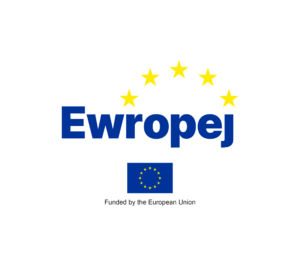European Democracy Can Only Survive With Proper Press Freedom, MEPs Say Referencing Daphne Caruana Galizia

The European Parliament has called for greater enforcement of freedom of the press laws and media ownership transparency across the European Union. The calls come amidst growing concern for media freedom in member states Hungary, Slovenia, Poland and other member states.
Throughout the debate, the murders of Daphne Caruana Galizia, who was assassinated in October 2017, and Ján Kuciak, a Slovakian journalist murdered in 2018, were cited as cases where the freedom of the press was greatly shaken and damaged.
Portuguese MEP, Paulo Rangel, highlighted the fact that “freedom of the press is a fundamental freedom under the rule of law and in a democratic society”. However, he reiterated that it is not enough to praise and raise concerns regarding the freedom of the press.
Rather, Rangel emphasised the fact that what is actually required “is for governments to respect that freedom”. The MEP stated that journalists need to be given proper protection so that they are not murdered for doing their jobs.
European countries have seen grave drops in their positions on the World Press Freedom Index. Several countries such as the Czech Republic, Slovakia and Bulgaria have all significantly dropped down the list over the past few years.

The clearing of the memorial to Daphne Caruana Galizia is in clear breach of activists' fundamental right to freedom of expression
Malta meanwhile has fallen to the 81st position in 2020 on the index, down four places when compared to 2019.
According to Reporters Without Borders, who compile the index, Malta saw a drop in its position primarily due to the clearing of the memorial to Daphne Caruana Galizia (a decision made with “thought and specific intention” to create division amongst the Maltese people), breaching activists’ fundamental right to freedom of expression, weakness of the rule of law and the unlawful detention of the press in late 2019 in Castille”.
Additionally, journalists feeling intimidated, discredited or faced with toxic rhetoric for covering government corruption also played a large role alongside media ownership being dominated by political parties.
“Words are not harmless. Verbal attacks on journalists can actually even lead to murder as we have seen with Malta and Slovakia where the murders were preceded by endless verbal attacks by political leaders,” Dutch MEP, Sophie in ‘t Veld said.
She went on to emphasise that instead, such a climate of hatred “gives people almost literally a license to kill [freedom of the press]”, citing the cases of Caruana Galizia and Kuciak.
The sentiment throughout the debate was that of calling for legislative proposals on SLAPP, transparency of media ownership and also proper monitoring and enforcement of the rule of law across the EU to ensure that governments respect this freedom.
A strong desire for “institutional foundations for independent public broadcasters” was highlighted especially by Slovakian MEP Vladimír Bilčík, who explained that this was the only way for European democracy and values to survive.
“European Democracy can only persevere with media that work in line with European values […] There is no other way.”
As highlighted by MEPs, media impartiality has become a hive for propaganda and misinformation to be spread in countries – and in some cases even lead towards fostering a climate of hatred, division and misinformation.
Lovin Malta has filed a court case to challenge Malta’s broadcasting law to reverse the proviso passed in 1991 which allowed the Broadcasting Authority to close an eye towards political party stations despite the Constitutional obligation for broadcasters to be as impartial as possible.
It is only the first step that has been made towards striving for a future where misinformation and propaganda are not allowed to divide Maltese people nor offer the climate for further degradation to the freedom of the press, rule of law and independent journalism.
For more information on our court case, you can visit our Kaxxaturi website here.

This article is part of a content series called Ewropej. This is a multi-newsroom initiative part-funded by the European Parliament to bring the work of the EP closer to the citizens of Malta and keep them informed about matters that affect their daily lives. This article reflects only the author’s view. The European Parliament is not responsible for any use that may be made of the information it contains.
Share this with your friends and highlight the importance of freedom of the press
